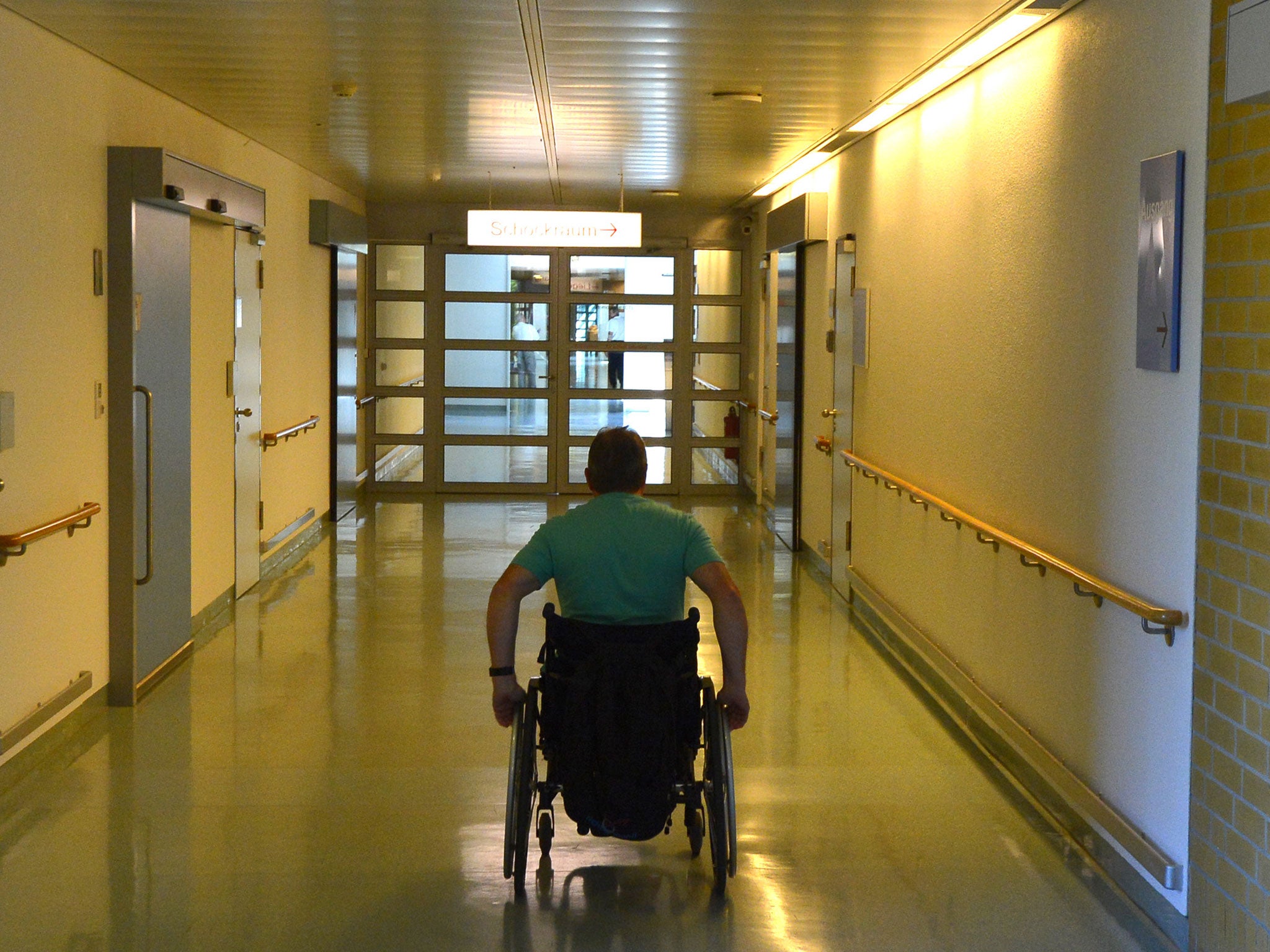Exclusive: Struggling families caring for disabled relatives face £1bn cuts
The Government has been accused of dealing coldly with some of the UK's most vulnerable families

Families caring for seriously ill and disabled relatives face £1 billion in cuts to financial support over the next four years, a major study shows.
The Government was accused on Sunday night of dealing callously with some of Britain’s most vulnerable families, as cuts to full-time carers’ benefits mean many are forced into debt and to rely on food banks.
The cumulative effect of a slew of welfare changes has been devastating for those who give up their lives to care for loved ones, experts say. The benefit changes contributing to carers being £1bn out of pocket by 2018 include: the ‘bedroom tax’, the benefit cap and fewer people being eligible for Carer’s Allowance.
The figures published exclusively in The Independent are part of a year-long investigation by Carers UK into the costs of caring for an elderly or disabled relative. The report’s full findings will be published by the charity on Tuesday.
Researchers analysed the cumulative loss of income for carers from 2011 to 2018, the projected date by which the Government plans for its welfare reforms to have been introduced fully.
Heléna Herklots, Chief Executive of Carers UK said: “The Government heaps praise on carers as ‘heroes’ at the same time as it is slashing their support. Worse still, carers are being hit repeatedly by cuts which the Government says are designed to move people into work and penalise people who are ‘not contributing to society.
She added: “We are appalled at this lack of respect for carers’ contribution to the strength of our society and family life, and the lack of recognition that working alongside caring is impossible for many families.”
Responding to the research, Shadow Work and Pensions Secretary, Rachel Reeves said, “carers need the support of a government that understands their vital, and often unsung role, in our communities. Yet David Cameron and Iain Duncan Smith have shown they are only prepared to stand up for a privileged few, with tax cuts for millionaires, while hitting the poorest and most vulnerable with policies like the hated Bedroom Tax. Sixty thousand carers are hit by the Bedroom Tax - David Cameron should be applauding them, not piling on more pressure. That’s why the next Labour government will scrap the Tory’s Bedroom Tax.”
Carers save the Government an estimated £119 billion a year in the unpaid care they provide to family members. Many welfare changes were specifically designed to push people into work - a rationale which the charity says does not apply to people providing full-time care to seriously ill or disabled relatives.
Ms Herklots said: “The Government cannot afford to send the message that carers should stop caring and ‘get a job’ – not only is it insulting to the millions of families struggling with little support to care for disabled or older loved ones, but it fails to recognise that if they stopped caring, the cost to the state would be immense.”
The DWP argues that carers are protected from policies such as the bedroom tax and the benefit cap, but for many people this is not the case. Campaigners want a blanket exemption from welfare changes such as these for anyone in receipt of Carer’s Allowance.
For example, a paid care-worker is allowed their own room under the bedroom tax (a policy which reduces housing benefit from families deemed to have a ‘spare’ room), but a spouse who is a carer and cannot share a bed with their disabled partner is not exempt. Similarly, while parents with a disabled child are protected from the benefit cap, this protection ends once their child turns 18, even if they are unable to live independently.
A Department for Work and Pensions (DWP) spokesman said: “Carers provide an invaluable service to people in some of the most vulnerable circumstances in our communities. That's why we're spending around £2bn this year on Carer’s Allowance - and even more in the future.”
He added: “Universal Credit will ensure that those carers on low incomes receive the support they need by allowing them to keep more of their own money as they move into work. It will also give carers more flexibility if they need carers breaks.”
A breakdown of £1bn cuts for carers (total cut by 2018)
Carers’ Allowance - £175.63m cut
24,457 fewer people entitled to it as Personal Independence Payment is introduced
Bedroom tax - £150.70m cut
At least 40,000 carers see rent support cut by more than £700 a year because of Housing Benefit ‘spare room’ changes.
Benefit Cap - £72.4m cut
At least 2,946 carers see incomes capped, losing an average of £105 a week
New inflation measure - £421.91m cut
Carer’s Allowance will be devalued by 2018 after switch from Retail Prices Index to Consumer Prices Index
Means-tested benefits freeze - £79.56m cut
350,000 of Britain’s worst-off carers will be hit by means-tested benefits freeze
Council Tax Support - £170.34 m cut
More than 240,000 carers face additional Council Tax
Join our commenting forum
Join thought-provoking conversations, follow other Independent readers and see their replies
Comments